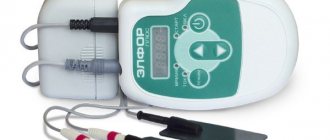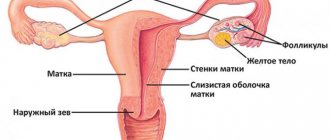Some women, even before their missed period, begin to experience symptoms similar to bladder inflammation. In some cases, these signs are only at first glance associated with cystitis. A medical examination may reveal that they do not signal an inflammatory process, but the conception of a child.
Some women, even before their missed period, begin to experience symptoms similar to bladder inflammation.
What is cystitis
Cystitis is a disease characterized by inflammation of the urinary canal or one of the walls of the bladder. Most often it has an infectious or cold origin. In women, cystitis often manifests itself in combination with diseases of the genital area, gastrointestinal tract or kidneys.
Symptoms of cystitis include:
- cutting and nagging pain in the lower abdomen, above the pubis;
- frequent urge to urinate;
- increased pain during and after urination;
- feeling of incomplete emptying of the bladder;
- a small volume of urine excreted (due to frequent trips to the toilet) with a persistent persistent urge;
- the appearance of bloody impurities in the urine;
- increased body temperature;
- periodic urinary incontinence.
In the acute form of the disease, these symptoms are clearly expressed, and in the chronic form they are usually smoothed out.
How is pregnancy related to the bladder?
To understand whether signs of cystitis may be related to pregnancy, you need to at least have a general idea of what changes begin to occur in a woman’s body after conception. When the egg has accepted the sperm, entered the uterus and began to implant into the mucous membrane, the body begins to make every effort to ensure that the process is successful and the pregnancy is not interrupted.
A global restructuring of hormonal levels begins.
The level of female hormones - estrogen and progesterone - increases sharply, and a new hormone appears - human chorionic gonadotropin (or hCG). Progesterone, together with adrenal hormones, temporarily reduces the immunity of the female body.
This is necessary so that the embryo is successfully implanted and the body does not perceive it as a foreign body. In addition, progesterone relaxes the muscles of the uterus and intestines.
Against the background of changes in hormonal balance, the microflora of the body, in particular the uterus, vagina and intestines, changes. The composition of vaginal discharge also changes, and new bacteria entering the urethra can cause irritation of the mucous membrane of the bladder.
How to treat diseases that occur at the same time
If the diagnosis showed the presence of cystitis and thrush caused by bacteria and fungus, the diseases will be treated by 2 specialists - a gynecologist and a urologist.
To prevent the proliferation of candida fungi and eliminate the causes of cystitis, a complex of drugs is prescribed for treatment.
With the simultaneous development of thrush and cystitis, take antifungal drugs - suppositories, tablets, creams, ointments, drops. The specialist selects all medications individually, based on the data obtained during diagnosis. The drugs to which the pathogen is most sensitive should be selected.
What signs along with cystitis may indicate pregnancy?
The beginning of embryo implantation is accompanied by increased “attention” of the whole body to the pelvic organs. Blood circulation in these areas increases, which can be indirectly noticed by the appearance of the external genitalia: they swell slightly and acquire a darker, slightly bluish color. Based on this sign alone, the doctor can with a high probability confirm the onset of pregnancy.
The frequent desire to relieve minor need against this background is due precisely to the rush of blood to the pelvis, and not to infection or hypothermia, as many women think. The main difference between this situation and cystitis is that urination is not accompanied by pain, and after it, as a rule, relief comes, without leaving a feeling of fullness of the bladder.
The first days of pregnancy, before the delay, may also be accompanied by nagging pain in the lower back and lower abdomen.
This occurs due to changes in the structure of the uterine mucosa for more comfortable ingrowth of the fertilized egg. These sensations are also sometimes attributed to cystitis, especially by people familiar with its chronic symptoms.
At the beginning of hormonal changes, a large amount of progesterone is released, many organs and glands begin to work actively, and this can be manifested by a slight increase in temperature. For many women, this is another argument in favor of cystitis, because in the acute form of this disease, the so-called inflammatory temperature is usually observed - 37.0–37.2 ° C.
Vaginal discharge associated with implantation processes can be confused with blood in the urine, which usually occurs in acute cystitis.
Typically, the embryo is attached to the back wall of the uterus, where many blood vessels are concentrated, and during implantation, small capillaries can break down, producing those same droplets of blood in the discharge that can be confused with blood in the urine.
That is, we have another sign that can be interpreted in two ways.
Diagnosis and treatment
After contacting an observing specialist if unpleasant symptoms appear, first of all, the woman is sent for a general urine test and a Nechiporenko test. A bacterial culture is also required to identify infectious agents. To clarify the diagnosis, a referral is issued for an ultrasound examination of the genitourinary organs. In some cases, cytoscopy and cystography are additionally performed.
The therapeutic course depends on whether the woman is pregnant or not. When carrying a baby, many medications are prohibited, so the emphasis is on folk remedies and safe procedures.
If pregnancy is confirmed
The main medications for the treatment of cystitis are antibacterial, which act on the cause of the pathology and eliminate pain. Amoxiclav and Monural are considered safe during pregnancy. When using the first medication, the course of therapy lasts from 5 to 14 days. “Monural” is considered the most effective - one sachet of the drug is enough to relieve pain.
Another approved drug for the treatment of cystitis during pregnancy is Canephron. It is based on plant components, it does not harm either the woman or the embryo. "Canephron" eliminates unpleasant symptoms and affects the cause of the disease.
The advantages of using the drug include:
- Relaxation of the vessels of the urinary tract, due to which swelling subsides and excess fluid is removed from the body.
- Improved kidney function.
- Normalization of bladder function.
- Strengthening the effect of antibacterial drugs.
Among the folk remedies during pregnancy, the following recipes are used:
- Take 3 parts of red rowan berries and 1 part of lingonberry leaves. The raw materials are steamed with a glass of boiling water, covered with a lid and allowed to brew for 3 hours. After this, strain the broth and drink half a glass 30 minutes before meals. To improve the taste of the medicine, you can add a little honey to it, if you are not allergic to bee products.
- Prepare a tablespoon of dill and pour 400 ml of boiling water over the raw material. Keep covered for half an hour and filter. Drink 70 ml three times a day a few minutes before meals.
If you don't get pregnant
The choice of medications for cystitis in the absence of pregnancy is much wider. As a rule, doctors prescribe drugs such as Cyston, Canephron and Fitolysin. In case of severe pain, you can take any antispasmodic, but you must remember that it only temporarily eliminates the discomfort, but does not affect the cause of the disease.
As an additional treatment, dry heat is used, heated salt in a linen bag or a bottle of water is placed on the bladder area. For the entire duration of treatment, they adhere to a dietary diet, excluding spicy, smoked and salty foods from the diet.
How to distinguish the beginning of pregnancy from cystitis
If other signs coincide, those that a woman mistakes for cystitis often indicate pregnancy. But, taking into account the general decrease in immunity during the period of implantation of the fertilized egg, one cannot completely exclude the real development of inflammation of the bladder mucosa as one of the consequences of a temporary weakening of the body’s defenses.
You can distinguish the onset of gestation from cystitis by the following main signs:
- No pain when urinating. Frequent urination in the first days of pregnancy is due to increased blood circulation in the pelvic organs, partly due to pressure on the bladder from the relaxed uterus and intestines. In this case, the woman does not feel any pain, but feels relief after emptying her bladder. With cystitis, the act of urination is accompanied by a pain that does not go away for a long time and does not bring the feeling of emptying.
- Absence of bloody and purulent impurities in the urine. If you have disturbing symptoms, you should pay attention to where the unusual discharge comes from. If it is minor mucous and bloody vaginal discharge, then this is normal for the first days after conception. If blood or pus appears in the urine, there is an inflammatory process.
The manifestation of symptoms indicating cystitis is a reason to consult a doctor to clarify the diagnosis and the presence of pregnancy.
How dangerous
If symptoms similar to cystitis appear before the delay of menstruation, women are advised to immediately consult a doctor and undergo the necessary tests. It is categorically unacceptable to self-medicate in such a situation, because If a child is conceived, many drugs and traditional medicine not only will not help cope with the problem, but can even harm the fetus. Postponing a visit to the doctor and letting the disease progress is also unacceptable because cystitis can lead to complications and cause inflammation of the kidneys.
Prevention of cystitis during pregnancy
The specificity of the treatment of cystitis and similar conditions in the early stages of pregnancy is that during this period both the use of antibiotics and various physical procedures and even folk remedies are contraindicated.
Therefore, if there is the slightest chance of pregnancy, it would be reasonable, as a preventive measure, to change your lifestyle so as not to overcool the body, empty your bladder on time, preventing it from overflowing, and also refrain from eating spicy and too salty foods.
Spray Epigen Intim
During pregnancy, I thought about thrush and its treatment, although I did not show any symptoms of thrush, i.e. I was healthy, however, due to the constant chronic course of the disease earlier, I decided to look for a preventive remedy that is allowed to be used during pregnancy. My doctor recommended Epigen Intim Spray. He described the remedy as universal, to treat such problems as herpes, papillomas, thrush, bacterial vaginosis, condylomas, etc.
At the pharmacy I was shocked by the price of Epigen Intim, it was huge. In my case 60 ml. The funds cost me around 1200 rubles. Although I know that the product is sold in 15 ml packaging. and accordingly costs less.
Epigen Intim Spray is sold in a cardboard package, which contains a plastic bottle with a spray nozzle and detailed instructions. The spray nozzle was constantly leaking, although I may have gotten a defect, but this is precisely what I consider a drawback of the product, constantly dirty hands and the need to thoroughly wash the bottle and then wipe it with alcohol, although I already wiped it with alcohol before use, since The spray nozzle does not have a protective cap.
The liquid is slightly oily and dark brown in color.
The active ingredient of Epigen Intim is licorice root, which ranks first in oriental medicine for its healing properties, and it is the anti-inflammatory property of licorice that is the most valuable quality in this plant. Licorice boosts the immune system, increases the body's resistance, stimulates the production of interferon, acts on pathogenic organisms and has a regenerating effect.
The use of Epigen Intim Spray is simple, you need to insert the spray nozzle into the vagina and press 1-2 times, you can use it 1-2 times a day. As a preventive measure, Epigen Intim should be used after each sexual intercourse. Since pregnancy is not a contraindication for having sex, my husband and I led an active life in this regard, and I used the spray every time after intercourse, as I had previously used Miramistin, and my husband continued to use Miramistin.
Epigen Intim can be used throughout pregnancy, which is very convenient; the only contraindication is increased sensitivity, which, for example, was not observed in me.
During pregnancy, I did not have the opportunity to treat thrush with Epigen spray, but malaria or herpes appeared on my lips and so I treated it with this remedy. In addition to the pills that I took internally, every day I sprayed a spray on the lip with the sore up to 4 times a day and let it dry. The only thing you need to make sure is that the malaria liquid does not spread over uninfected areas of the skin, otherwise I managed to transfer the sore from my lip to my cheek. I covered the malaria with cotton pads and only after that I sprayed Epigen.
As I already wrote, I recently had a relapse of thrush, and at first I tried to treat it with Epigen spray. Alas, the itching and burning went away for several hours, and then everything returned, I had to use Pimafucin and Viferon suppositories. As a preventative against thrush, Epigen is simply irreplaceable, since I didn’t have this problem during pregnancy, but as the only treatment, it’s not very suitable. Although in defense I will say that unpleasant symptoms such as itching and burning are eliminated within 5 minutes and the effect lasts for 4-6 hours, which is, in principle, convenient while you are being treated with suppositories for thrush. I would especially like to note that Epigen spray is safe for mother and child, especially when treating herpes, which is mainly treated with heavy pills that can affect the fetus.
Of course, the price of Epigen Intim is high, but a bottle, for example, lasted me 17 months and there was still something left in there, so I can safely say that the medicine will definitely be enough for 1.5 years.
I found this on the Internet, it’s interesting:










